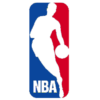When betting on gymnastics competitions, there are several key factors to consider to make informed and strategic wagers. Here are some things to look out for:
1. Athlete Performance and Form
- Recent Performances: Assess the recent performances of individual gymnasts in previous competitions. Look for trends in their scores, consistency, and overall form leading up to the event you’re betting on.
- Injuries and Health: Consider any recent injuries or health issues that may affect a gymnast’s performance. Even minor injuries can impact their ability to execute routines effectively and achieve high scores.
2. Competition Format and Rules
- Understanding Scoring: Familiarize yourself with the scoring system used in gymnastics competitions, as it can vary depending on the event and discipline. Understand how deductions are applied and what judges look for in terms of execution, difficulty, and artistry.
- Competition Format: Different gymnastics events may have varying formats, such as individual all-around, team competitions, or specific apparatus finals. Understand the rules and structure of the competition you’re betting on to make informed predictions.
3. Apparatus Specialization
- Strengths and Weaknesses: Each gymnast may have strengths and weaknesses on specific apparatuses (e.g., vault, uneven bars, balance beam, floor exercise). Assess their performance history on each apparatus to gauge their likelihood of success in the upcoming event.
- Apparatus Difficulty: Consider the difficulty level of routines performed by gymnasts on different apparatuses. Higher difficulty scores can potentially lead to higher overall scores if executed successfully but also carry a higher risk of errors and deductions.
4. Judging Bias and Subjectivity
- Understanding Judging Criteria: Recognize that gymnastics scoring involves a degree of subjectivity, as judges evaluate routines based on technical execution, artistry, and overall performance. Be aware of potential judging biases or preferences that may influence scores.
- Consistency Among Judges: Look for consistency in judging across different competitions and panels. While individual judges may have varying opinions, there should be a level of consistency in how routines are scored relative to their difficulty and execution.
5. Competition Environment
- Venue Conditions: Consider the venue where the competition is taking place, including factors such as equipment quality, lighting, and crowd atmosphere. Some gymnasts may thrive in certain environments while struggling in others.
- Pressure and Expectations: Take into account the pressure and expectations facing gymnasts competing in high-profile events or major championships. Some athletes may perform better under pressure, while others may struggle to meet expectations.
6. Historical Trends and Head-to-Head Records
- Past Performance: Review historical data and past performances of gymnasts in similar competitions or under comparable circumstances. Look for patterns or trends that may indicate how athletes tend to perform in specific situations.
- Head-to-Head Records: If available, consider head-to-head records between gymnasts competing against each other. Previous matchups and outcomes can provide insights into potential rivalries and competitive dynamics.
By considering these factors and conducting thorough research, you can make more informed betting decisions when wagering on gymnastics competitions. Remember to also manage your bankroll responsibly and only bet what you can afford to lose.







